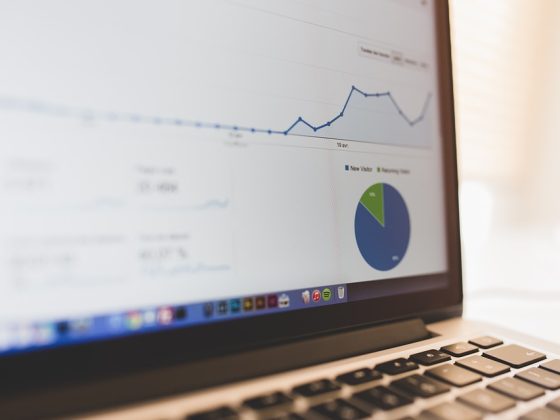end.
In today's fast-paced, data-driven business landscape, the ability to make informed decisions based on accurate and timely information is crucial to the success of any organization. This is where business analytics comes into play. Business analytics involves the use of data, statistical analysis, and predictive modeling to help organizations make data-driven decisions. By leveraging data and analytics, businesses can gain valuable insights into their operations, customer behavior, market trends, and more, which can help them drive growth and improve efficiency.
The impact of business analytics on decision-making in today's business landscape cannot be overstated. Businesses that effectively utilize analytics are able to make better decisions, increase their competitive advantage, and drive innovation. In this article, we will explore the ways in which business analytics is transforming decision-making in today's business world.
One of the key ways in which business analytics is impacting decision-making is by providing organizations with actionable insights. By analyzing data and uncovering patterns and trends, businesses can gain a deeper understanding of their operations and customer behavior. This can help them identify opportunities for growth, optimize their processes, and make strategic decisions that are based on data rather than gut instinct.
For example, a retailer may use business analytics to analyze sales data and customer demographics to identify which products are selling well and to which customer segments. This information can help them tailor their marketing strategies, pricing, and product offerings to better meet the needs of their customers and drive sales.
Another way in which business analytics is transforming decision-making is by enabling organizations to make more accurate forecasts and predictions. By leveraging data and predictive modeling, businesses can anticipate market trends, customer behavior, and potential challenges, allowing them to proactively address issues and capitalize on opportunities.
For instance, a manufacturing company may use predictive analytics to forecast demand for their products, enabling them to optimize their production schedules, inventory levels, and supply chain management. This can help them reduce costs, minimize waste, and better meet customer demand.
Business analytics also plays a crucial role in improving operational efficiency and performance. By analyzing data on key performance indicators (KPIs) and operational metrics, organizations can identify bottlenecks, inefficiencies, and areas for improvement. This can help them streamline their processes, reduce costs, and enhance productivity.
For example, a logistics company may use business analytics to analyze delivery routes, vehicle utilization, and fuel consumption to optimize their operations and reduce costs. This can lead to faster delivery times, lower fuel expenses, and improved customer satisfaction.
In addition to improving decision-making and operational efficiency, business analytics can also help organizations gain a competitive advantage. By harnessing the power of data and analytics, businesses can differentiate themselves from their competitors, innovate new products and services, and stay ahead of market trends.
For example, a technology company may use data from customer feedback, social media, and market research to identify emerging trends and customer needs. This can help them develop new products and services that meet changing consumer demands and stay ahead of the competition.
In conclusion, the impact of business analytics on decision-making in today's business landscape is profound. By leveraging data and analytics, organizations can gain valuable insights, make more informed decisions, drive growth, and stay ahead of the competition. In an increasingly data-driven world, businesses that embrace analytics are poised to succeed in the long run.
FAQs:
Q: What is business analytics?
A: Business analytics involves the use of data, statistical analysis, and predictive modeling to help organizations make data-driven decisions.
Q: How does business analytics impact decision-making?
A: Business analytics provides organizations with actionable insights, enables more accurate forecasts and predictions, improves operational efficiency, and helps businesses gain a competitive advantage.
Q: How can businesses leverage business analytics?
A: Businesses can leverage business analytics by analyzing data, uncovering patterns and trends, forecasting market trends and customer behavior, optimizing operations, and staying ahead of the competition.











